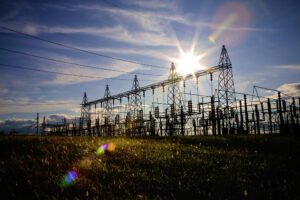In today’s world, homeowners are increasingly concerned with optimizing their energy consumption and reducing heating costs, all while contributing to a sustainable and eco-friendly living environment. One of the questions that frequently arises is: which is cheaper – Electric or Gas? To answer this, we must analyze various factors such as energy efficiency, unit costs, and regional availability.
In this detailed examination, we will assess the efficiency and costs associated with both natural gas and electricity, providing valuable insights for Canadian homeowners seeking the most cost-effective energy solution for their homes. Furthermore, we will introduce Muvar’s Rates Comparison Tool – a valuable resource that simplifies the process of discovering the latest electricity and natural gas deals, empowering you to make educated decisions tailored to your unique energy needs.
Join us as we uncover the advantages and drawbacks of natural gas and electric consumption in Canadian households, helping you make an informed decision about your home’s energy sources and paving the way for a more cost-effective and sustainable living experience.
Comparing Energy Efficiency: Electricity vs. Natural Gas
Unearthing the most cost-effective energy solution for your home begins with understanding how natural gas and electricity compare in terms of energy efficiency:
- Energy Conversion Efficiency: Natural gas appliances typically offer higher energy conversion efficiency compared to electric appliances. For example, gas furnaces can reach an efficiency level of up to 98%, whereas electric baseboard heaters may max out at 100% efficiency but generate less heat overall due to electricity limitations.
- Heat Production: Gas appliances often provide faster and more consistent heat than their electric counterparts. This can be observed in gas stoves, which deliver heat instantly, as opposed to electric stoves that take time to warm up and cool down.
Regional Availability and Variability: Impact on Electric and Gas Costs
The availability and costs of natural gas and electricity can vary dramatically between provinces and utility providers, with Alberta being a prime example:
- Electricity Market Deregulation: In Alberta, the electricity market is deregulated, which means customers can choose their electricity retailer from various providers. This market competition can lead to fluctuating electricity prices.
- Natural Gas: Alberta’s abundant natural gas resources can result in lower natural gas prices compared to other Canadian regions. Keep in mind this can also fluctuate based on market conditions.
You can compare electricity and natural gas rates in Alberta by using Muvar’s Rates Comparison Tool and access the latest energy rates, facilitating informed decision-making.
Appliance Costs: Upfront vs. Lifetime Expenses
An important aspect to consider when determining the cheaper energy option is the initial and long-term costs associated with appliances:
- Upfront Costs: Gas appliances generally have a higher initial purchase cost compared to electric appliances.
- Installation Costs: Gas appliances might require professional installation and possible modifications to existing infrastructure, such as gas lines. This can lead to additional costs when compared to electric appliances that only require a power outlet.
- Lifetime Costs: Gas appliances often offer better energy efficiency and lower operating costs in the long run. This could offset the initial purchase and installation costs over time.
Environmental Considerations: Greenhouse Gas Emissions
While cost savings are essential, environmental impacts should also be taken into account when choosing between gas and electric energy sources:
- Carbon Footprint: Natural gas combustion releases greenhouse gases, including carbon dioxide and methane, contributing to climate change. Electricity generated from renewable sources (e.g. solar, wind, hydro) produces little to no greenhouse gas emissions and can reduce the environmental impact of electric appliances.
- Renewable Energy Availability: By choosing an electricity provider that sources power from renewable resources, you can minimize your carbon footprint. Additionally, Alberta’s commitment to increasing renewable energy production can result in potential long-term benefits for those utilizing electric energy.
Home Energy Efficiency: A Holistic Approach
The overall efficiency of your home plays a significant role in determining which energy source is more cost-effective:
- Insulation and Drafts: Improved insulation and sealing drafts can lower your energy consumption regardless of whether you primarily rely on gas or electric appliances. This can also influence the overall efficiency of your heating and cooling systems.
- Thermostat Settings: Optimizing your thermostat settings by programming temperature changes based on your daily routine can minimize energy waste and lower overall costs.
- Energy Audits: Conducting a professional energy audit can help identify potential areas for improvement in your home, enabling you to optimize energy efficiency, reduce costs, and make informed decisions about your energy sources.
Energy Usage Patterns: Understanding Your Household’s Consumption
Your household’s unique energy consumption patterns should be considered when deciding between gas and electric:
- Peak Usage Times: Electricity prices can vary based on the time of day, with peak consumption times often resulting in higher prices. Natural gas prices tend to remain more consistent throughout the day. This is less the case in Alberta and more prevalent in the Eastern provinces.
- Seasonal Variations: Gas usage usually spike during the cold Canadian winters, while electricity usage may increase during the extended daylight hours in summer. As such, it is vital to understand your specific consumption patterns and determine how they might impact your costs.
Choosing the Right Energy Solution for Your Home
The choice between natural gas and electric energy sources depends on various factors unique to each homeowner, including regional availability, appliance costs, environmental considerations, and usage patterns. To make an informed decision, it is essential to understand these factors and determine which energy source will provide the most cost-effective solution for your specific needs.
Make your energy decisions with confidence by utilizing Muvar’s Rates Comparison Tool, which allows you to discover the latest electricity and natural gas deals in Alberta. Benefit from latest market pricing data to ensure you are making the best choice for your home’s energy requirements. You can also consult “Sammy”, our AI-Enabled chatbot for all your energy cost saving inquiries. Start your journey to a more cost-effective and sustainable living experience by visiting today.





